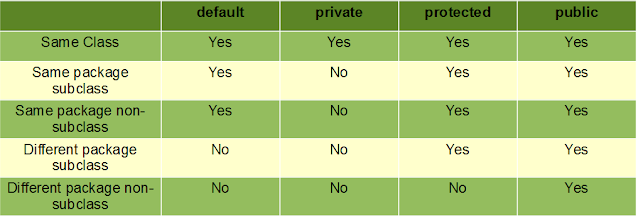Arithmetic Operators
1. The Arithmetic Operators
public class BasicMath {
public static void main(String args[]) {
// arithmetic using integers
System.out.println("Integer Arithmetic");
int a = 1 + 1;
int b = a * 3;
int c = b / 4;
int d = c - a;
int e = -d;
System.out.println("a = " + a);
System.out.println("b = " + b);
System.out.println("c = " + c);
System.out.println("d = " + d);
System.out.println("e = " + e);
// arithmetic using doubles
System.out.println("\nFloating Point Arithmetic");
double da = 1 + 1;
double db = da * 3;
double dc = db / 4;
double dd = dc - a;
double de = -dd;
System.out.println("da = " + da);
System.out.println("db = " + db);
System.out.println("dc = " + dc);
System.out.println("dd = " + dd);
System.out.println("de = " + de);
}
}Output:
Integer Arithmetic
a = 2
b = 6
c = 1
d = -1
e = 1
Floating Point Arithmetic
da = 2.0
db = 6.0
dc = 1.5
dd = -0.5
de = 0.5
2. The Modulus Operator
returns the remainder of a division operation
public class Modulus {
public static void main(String args[]) {
int x = 42;
double y = 42.25;
System.out.println("x mod 10 = " + x % 10);
System.out.println("y mod 10 = " + y % 10);
}
}Output:
x mod 10 = 2
y mod 10 = 2.25
3. Increment and Decrement
4. Arithmetic Assignment Operators
public class OpEquals {
public static void main(String args[]) {
int a = 1;
int b = 2;
int c = 3;
a += 5;
b *= 4;
c += a * b;
c %= 6;
System.out.println("a = " + a);
System.out.println("b = " + b);
System.out.println("c = " + c);
}
}
.png)









.png)



